Real-World Evidence
egnite’s database contributes to a body of evidence that helps physicians uncover and close gaps in patient care.
A preview into our work…
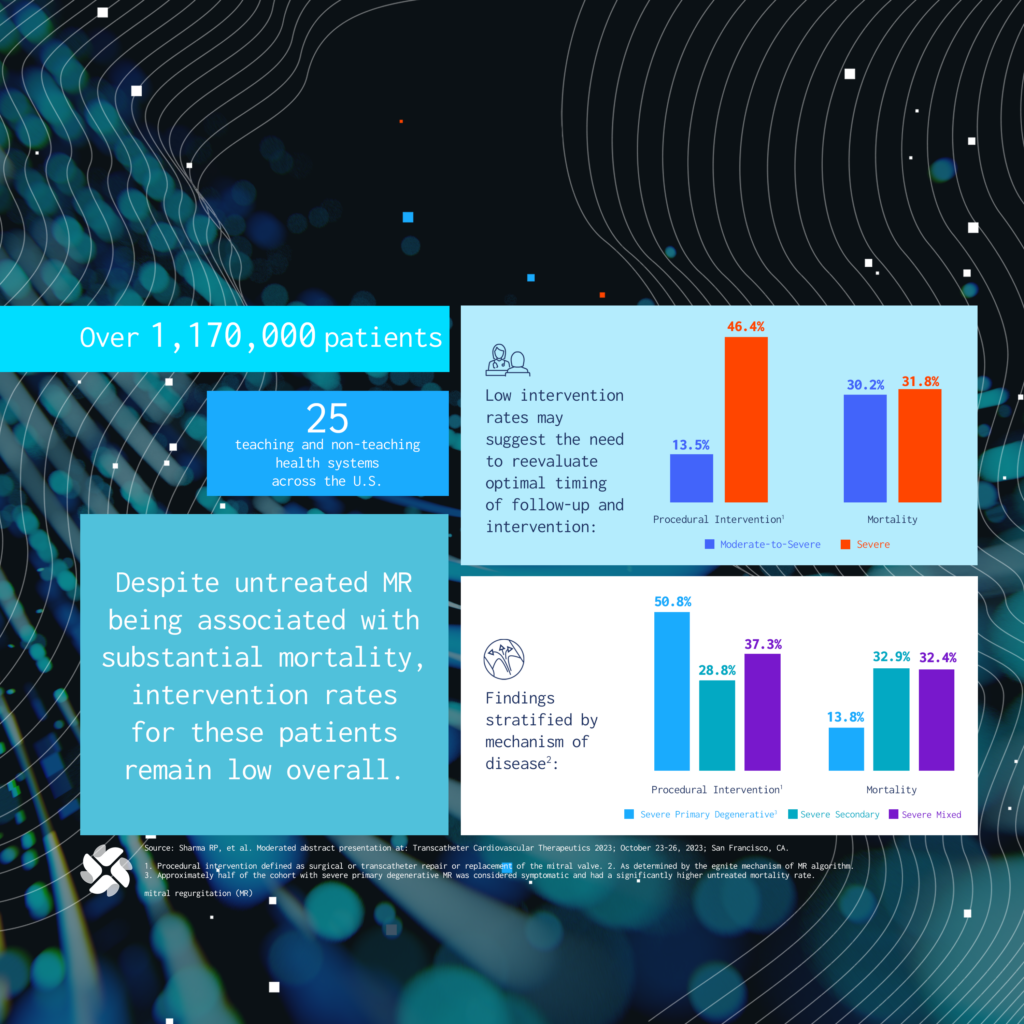
Treatment Patterns and Associated Outcomes for Patients With Mitral Regurgitation
Presented at TCT 2023, data from egnite’s database demonstrated patients with moderate-to-severe and severe mitral regurgitation exhibit similar untreated mortality, yet moderate-to-severe patients are 3 times less likely to be treated.1
1 Sharma RP, et al. Moderated abstract presentation at: Transcatheter Cardiovascular Therapeutics 2023; October 23-26, 2023; San Francisco, CA.
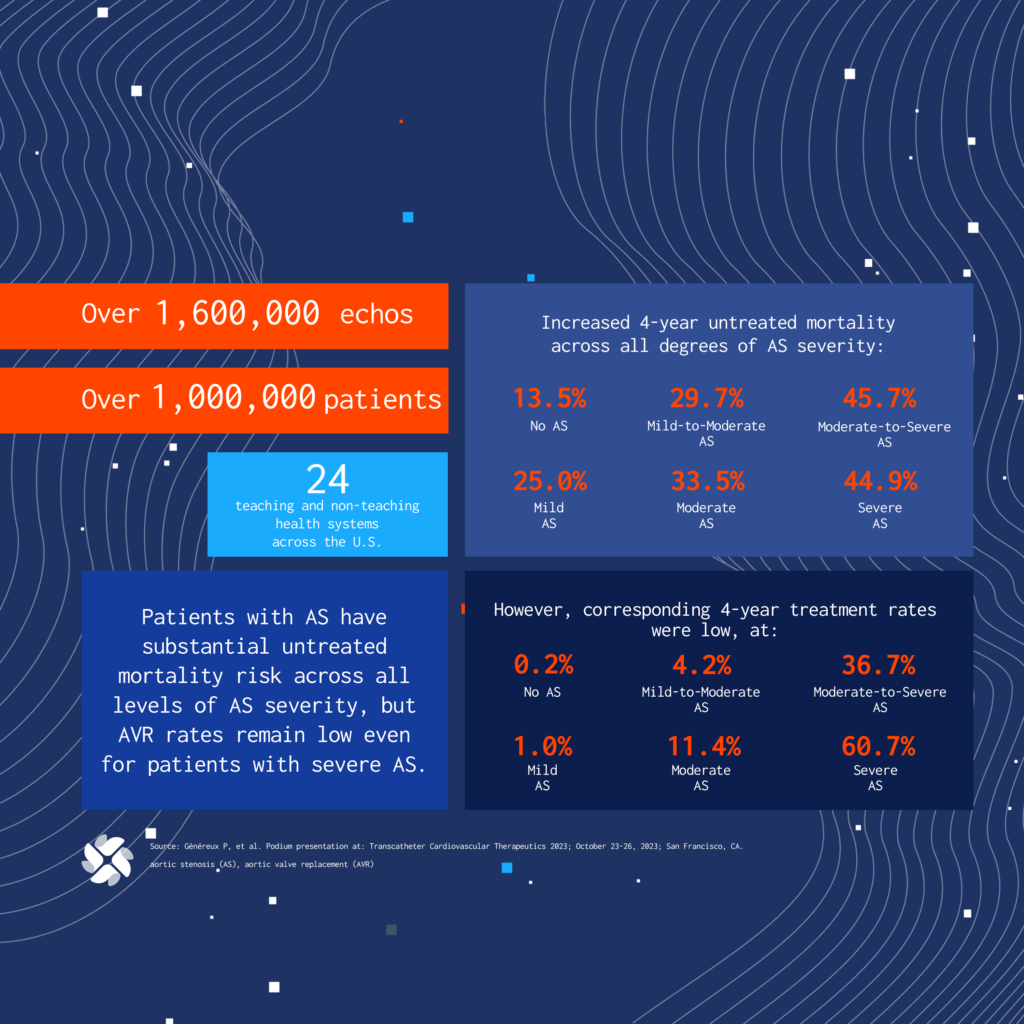
The Mortality Burden of Untreated Aortic Stenosis: Results From a Large Real-World Database
Published in the Journal of the American College of Cardiology, data utilizing egnite’s database demonstrated that patients with AS have substantial untreated mortality risk across all levels of aortic stenosis severity, but rates of treatment with aortic valve replacement remain low – even for patients with severe AS where ~60% were treated within 4 years.2
2 Généreux P, et al. J Am Coll Cardiol. Published online October 24, 2023. doi: 10.1016/j.jacc.2023.09.796
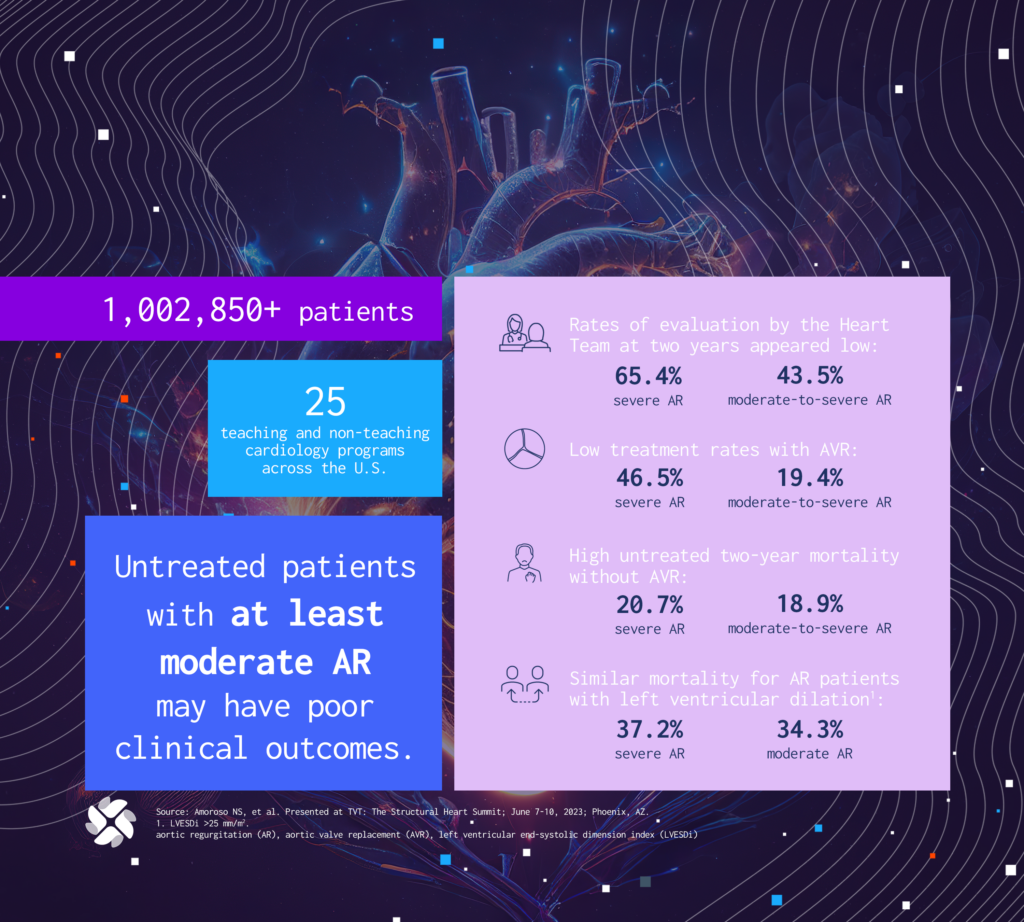
Clinical Journey for Patients With Aortic Regurgitation: A Retrospective Observational Study from a Multicenter Database
Presented at TVT 2023, data from egnite’s database uncovered that despite high two-year mortality rates and guideline indications for treatment, patients with severe AR received low rates of specialist evaluations and treatment with aortic valve replacement.3
3 Amoroso NS, et al. Presented at TVT: The Structural Heart Summit; June 7-10, 2023; Phoenix, AZ.
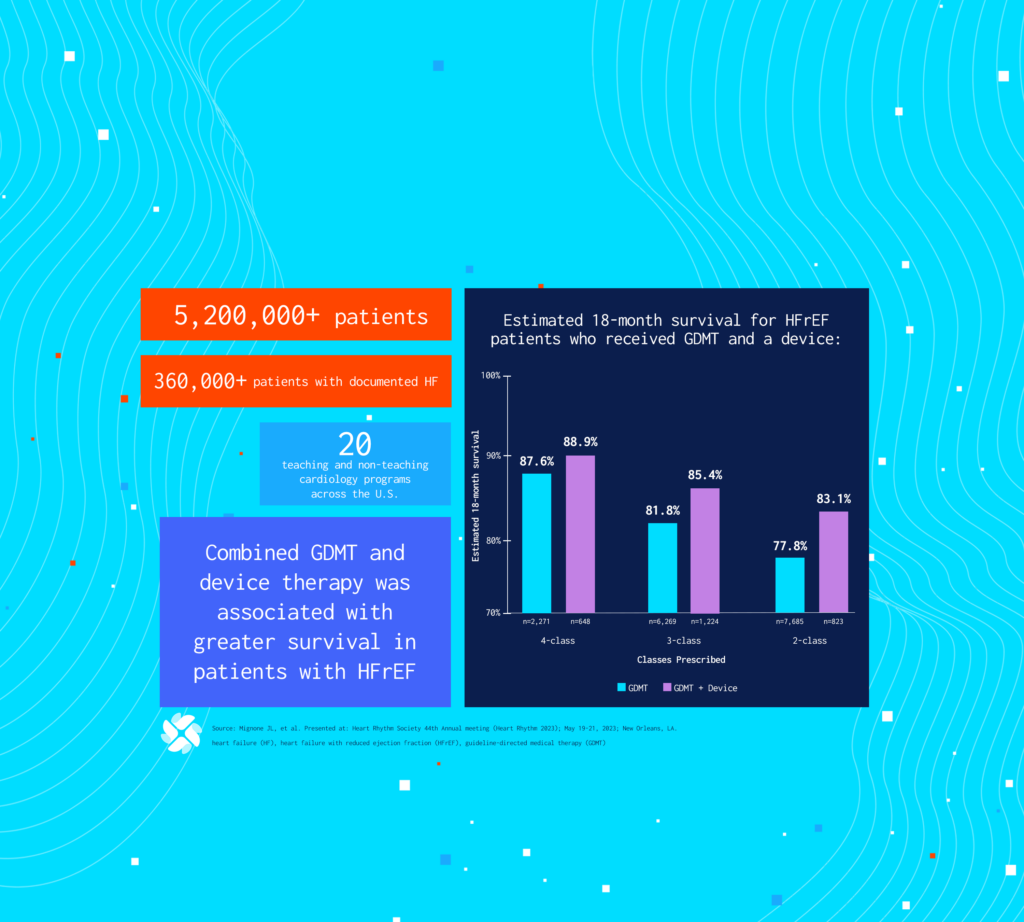
Outcomes with Guideline-Directed Medical Therapy and Cardiac Implantable Electronic Device Therapies for Patients with Heart Failure with Reduced Ejection Fraction
Presented at Heart Rhythm 2023, data from egnite’s database showed that combined GDMT and device therapy was associated with greater survival in patients with HFrEF.4
4 Mignone JL, et al. Presented at: Heart Rhythm Society 44th Annual meeting (Heart Rhythm 2023); May 19-21, 2023; New Orleans, LA.
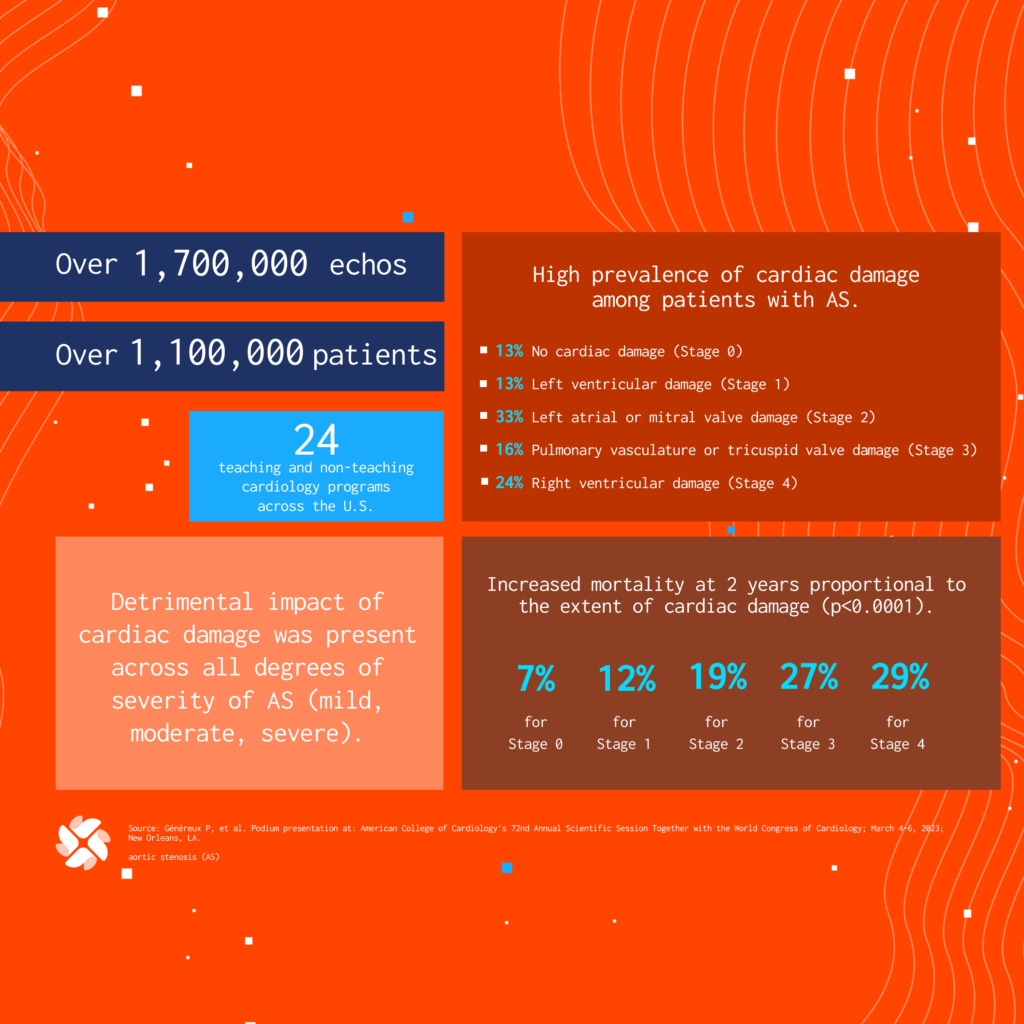
Prognostic Impact of Cardiac Damage Across the Spectrum of Aortic Stenosis Severity: Results from a Large Real-World Database
Published in the Journal of the American College of Cardiology, data utilizing egnite’s database demonstrated that cardiac damage is very common in all degrees of AS severity, driving poor patient outcomes with increased mortality at 2 years.5
5 Généreux P, et al. J Am Coll Cardiol. 2023;81(8_Suppl):1930.
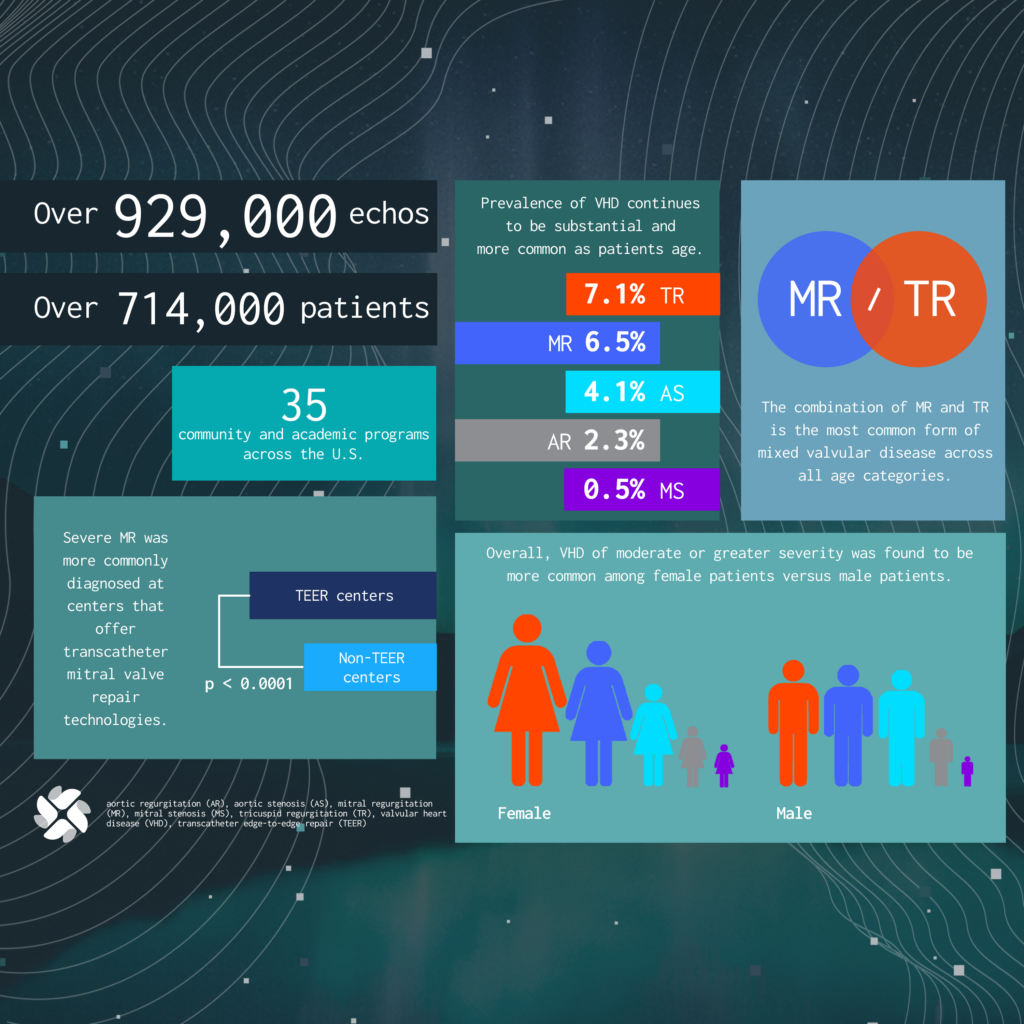
The Contemporary Prevalence of Valvular Heart Disease
The largest contemporary analysis of VHD in the US was performed on over 929,000 de-identified echocardiograms from egnite’s database.6,7
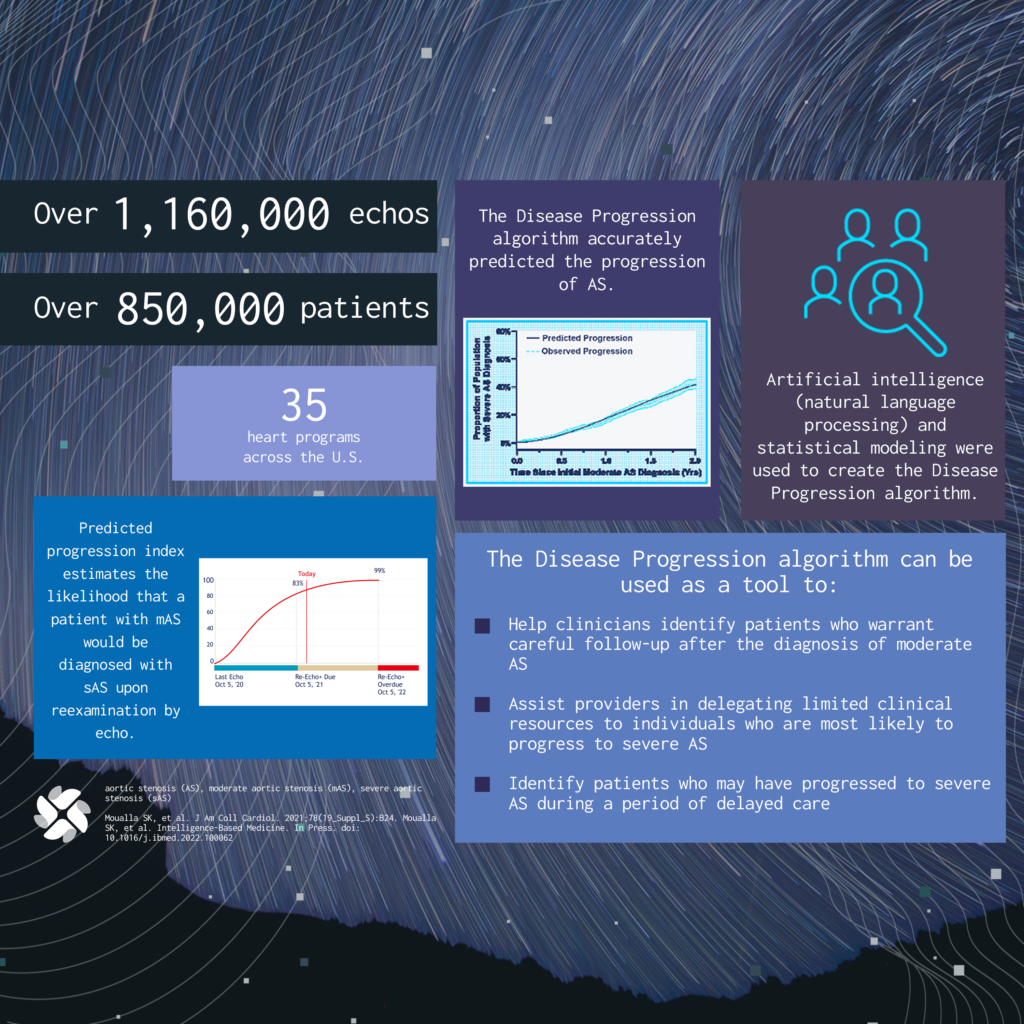
Utilizing Artificial Intelligence to Predict the Progression from Moderate to Severe Aortic Stenosis
Published in Intelligence-Based Medicine, leveraged over 1 million de-identified echocardiograms from egnite’s database.8,9
8 Moualla SK, et al. J Am Coll Cardiol. 2021;78(19_Suppl_S):B24.
9 Moualla SK, et al. Intelligence-Based Medicine. 2022;6:100062.
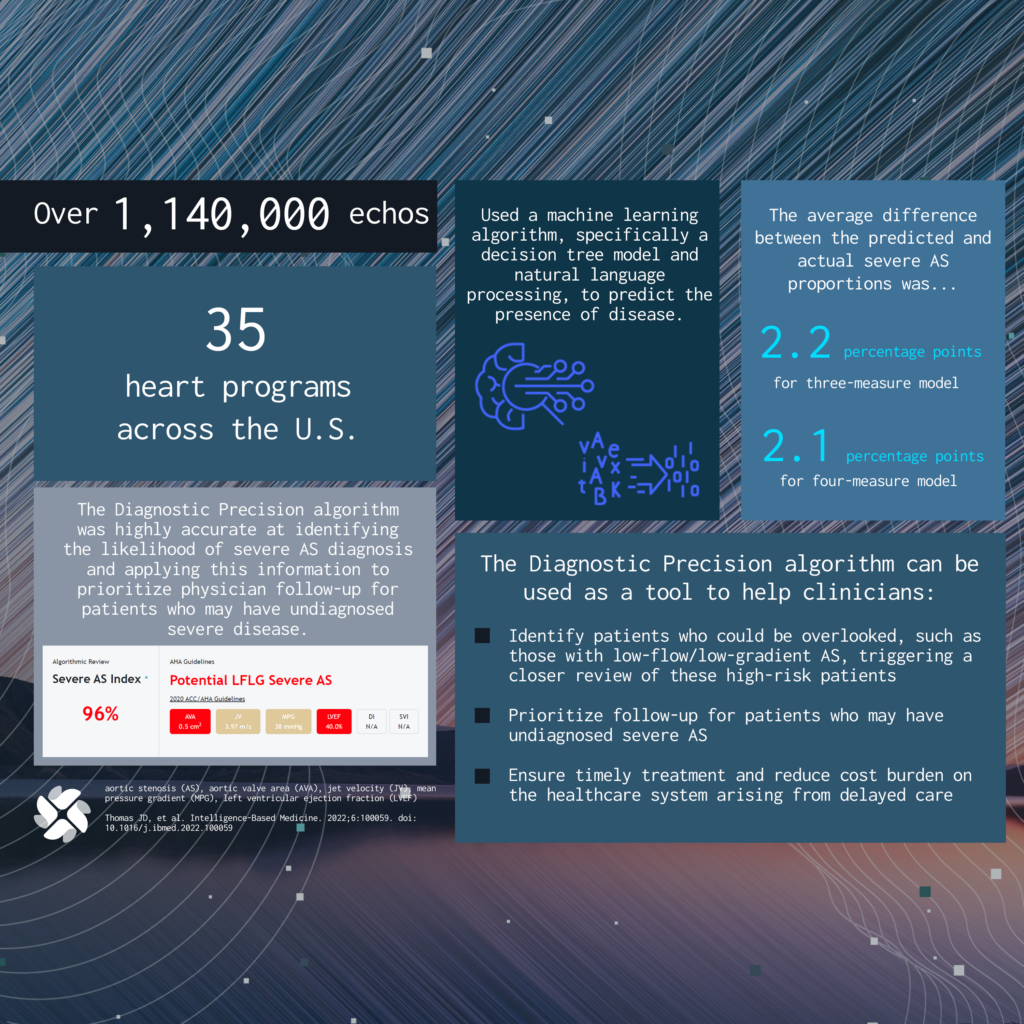
Artificial Intelligence to Assist Physicians in Identifying Patients with Severe Aortic Stenosis
Published in Intelligence-Based Medicine, leveraged over 1 million de-identified echocardiograms from egnite’s database.10
10 Thomas JD, et al. Intelligence-Based Medicine. 2022;6:100059.
